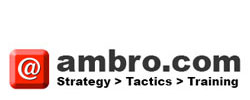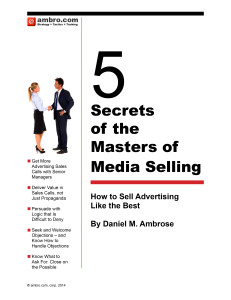Advertisers just want advertising that works. Sounds simple. Programmatic advertising sounds like just the ticket. Advertisers are being told “just buy a program that is automatic.” “We’ll just program the characteristics you want” and then you buy only the audience that fits the description.
Can Advertisers Find Competitive Advantage in Programmatic?
This “programmatic” approach sounds like a sure fire way to make money in stocks too! Just buy the stocks that are going up! Or Just buy the stocks with low price-earnings ratios. I could give you a hundred different formulas that investors use. Stock-buying is like media buying because, just like our data-driven advertising world, there is copious financial performance data about each individual company you might invest in and lots of data about past behavior of the stock.
With all that great data on past “behavior” and programmatic technology, why is it so hard to beat the market in stocks? Simple. Everyone is using the same data. Stock prices simply go up (or down) to the point of equilibrium where the supply and demand are in balance. Any new formula works only briefly, until it drives the price up or down to equilibrium. You might say the past performance is fully “discounted” (taken into account) in the price. There is a Nobel-winning economic theory that says no-one can consistently beat the market; that those who do are just temporarily lucky. There is also evidence and another Nobel winner who espouses that some people — like Warren Buffett — can beat the market by “seeing through” the ups and downs of the market to a larger and longer-term trend; allowing them to buy (low) and sell (high) contrary to the tendency of most market participants.
Finding Competitive Advantage
If I am a pick-up truck marketer, and I want to buy ads targeted to people who recently shopped on a car-shopping site, who have credit ratings above 700, and who like hunting and fishing, I can do that. But my competitor is likely to be bidding on the same audience, driving the price up. So where will I, the truck marketer, find a competitive advantage?
One source of competitive advantage in marketing is up-stream: If the advertiser can see past the transaction to the brand-building that precedes the purchase and motivates the purchase, they can gain an advantage. It’s about building the prospect’s trust in a brand before they reach the ‘buying funnel.’
In the ‘pre-digital world” stock brokers were paid on a transactional basis; commissions on trades. Today investors can do “programmatic buying” of stocks, and they certainly don’t need the services of a stock broker to do so. So financial sales people have changed their game. Now they are paid based on a fee on the total funds managed…when funds managed rise their compensation goes up. Today these highly paid sales people, aka ‘financial consultants,’ formerly stock brokers, help investors make decisions about allocating their investments to perform well over time.
In the media business, the most important sales skills will be insightful, consultative sales helping advertisers assemble a portfolio of media investments that work together over time to create competitive advantage for the advertiser. These are different advertising sales skills than what worked in the past. Back in the day, sales people were skilled at pushing their one media over the competitive alternative. CBS vs. Fox, or Elle vs. Vogue.
Train for Success

The smartest advertising-driven media companies already recognize this. Meredith Levien, the dynamic new leader of the New York Times advertising sales force said; “Programmatic buying won’t replace premium buying; it solves different problems for marketers….Publishers who operate without bias to old models and with constant focus on training for creative and technological proficiency will win in both cases.” John Battelle, CEO of Federated Media said “Selling into this world requires business development skills, a curious nature, and a consultative nature. It’s not for everyone.”
Today, advertisers want and need a complete solution. And advertising sales people need ad sales training on how to sell hybrid advertising packages where the value is greater than the sum of the parts. Like a hybrid car with two engines that work separately and together to provide higher mileage, a hybrid ad sales proposal provides the advertiser with coordinated media elements that may include premium display to build interest and brand trust and programmatic impressions to reach that same customer as they move through the purchase decision process.
In short, well-trained, creative, consultative sales people are a source of competitive advantage for advertisers, so they are a source of competitive advantage for publishers.

